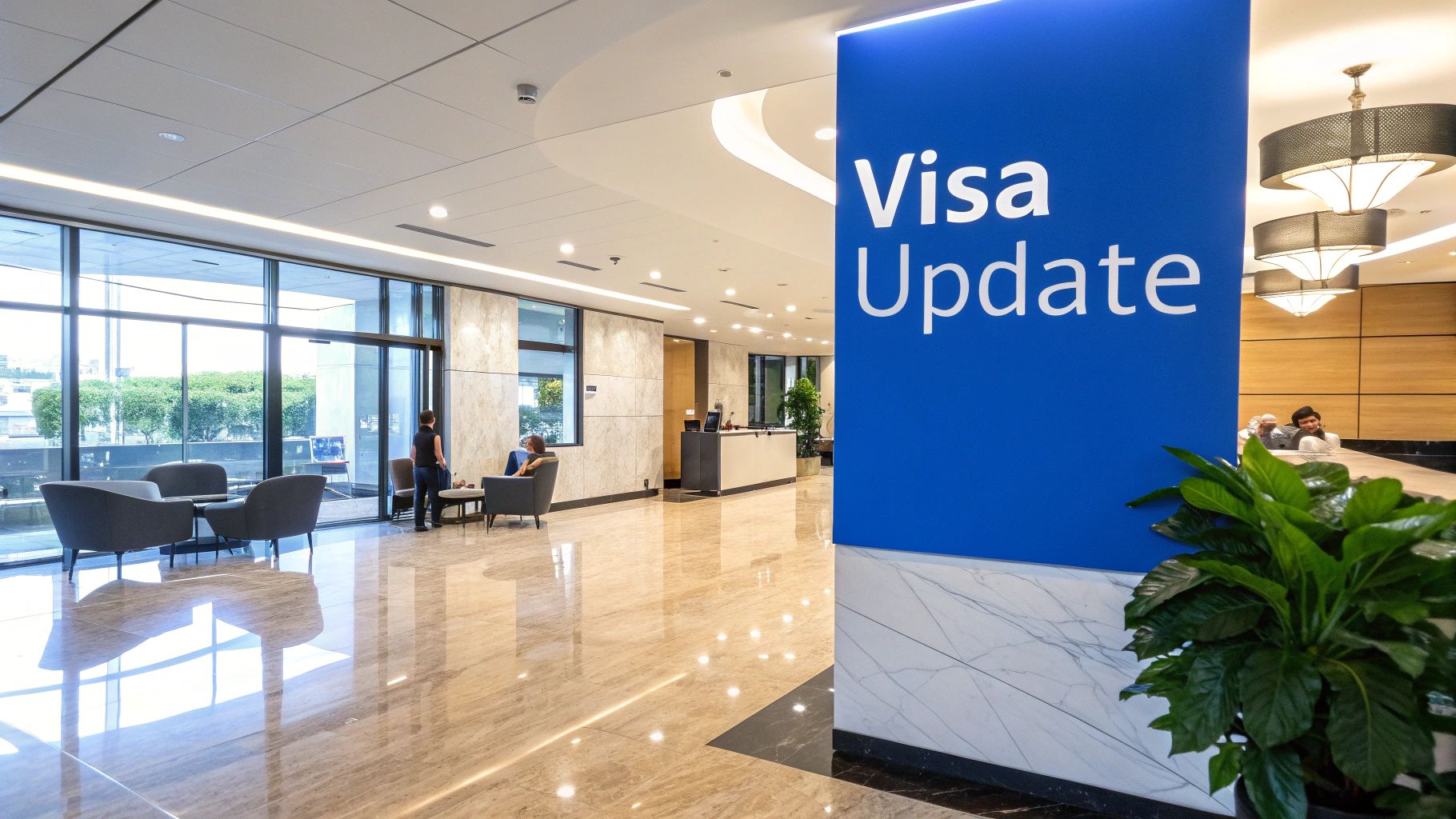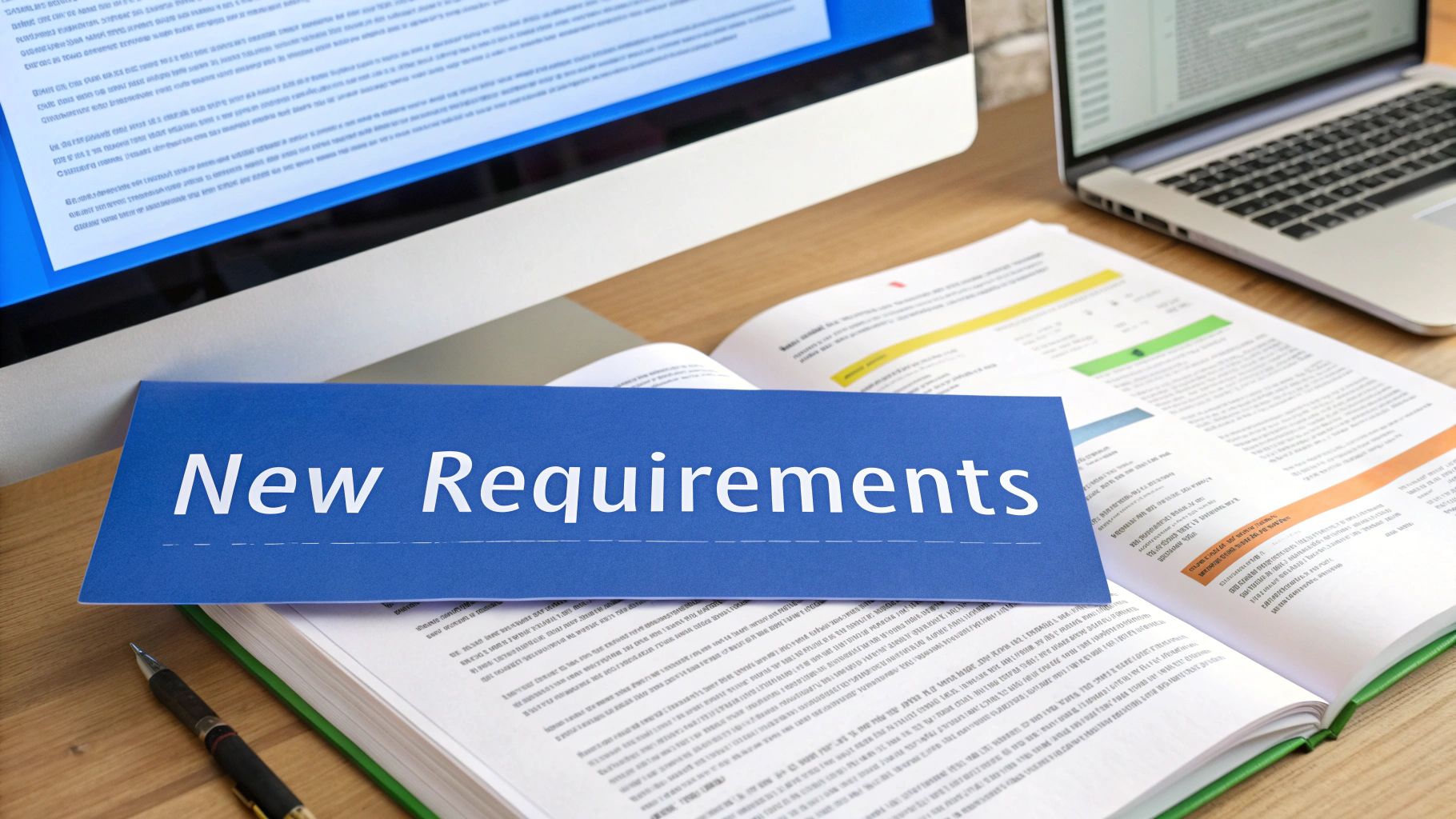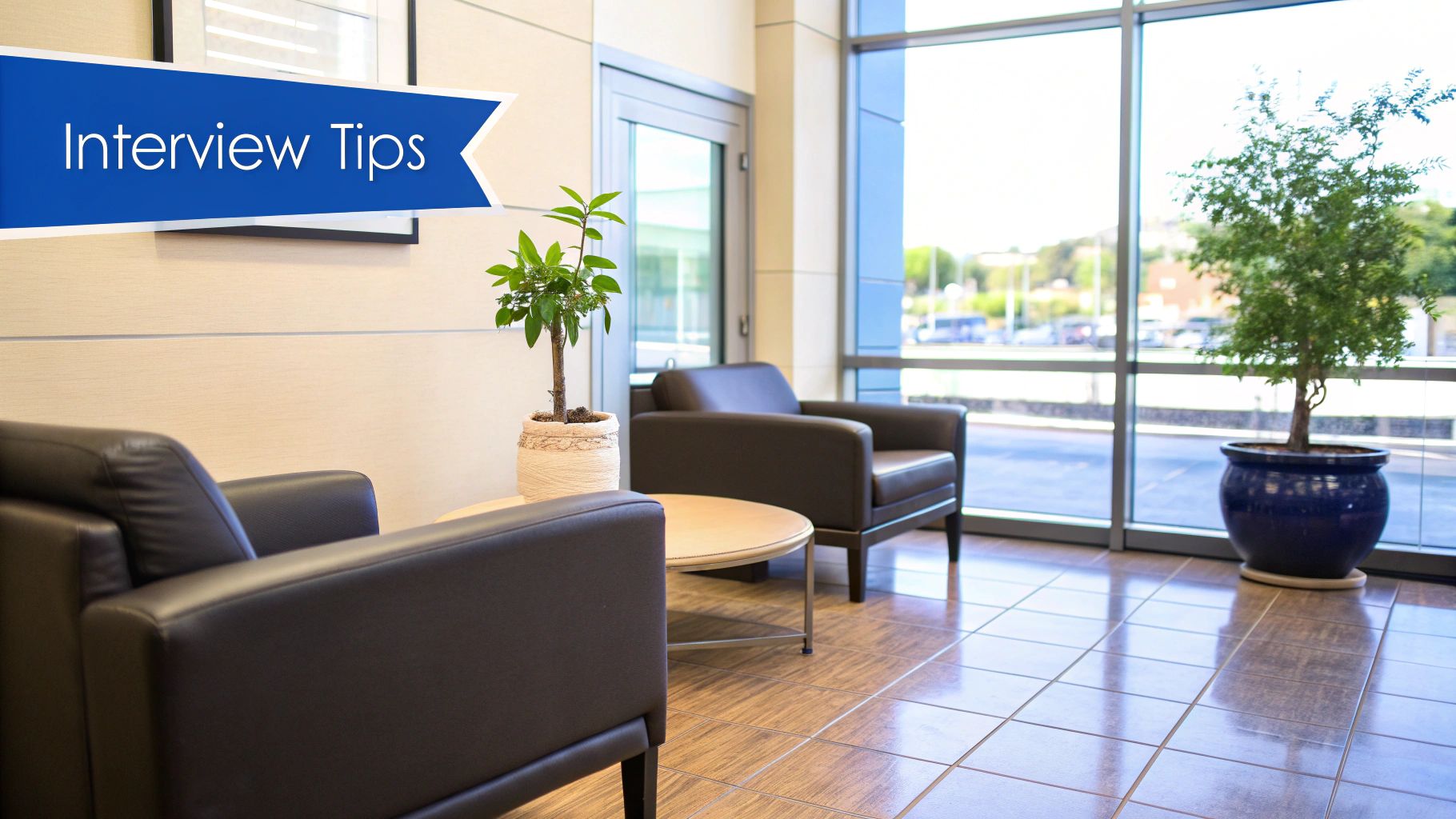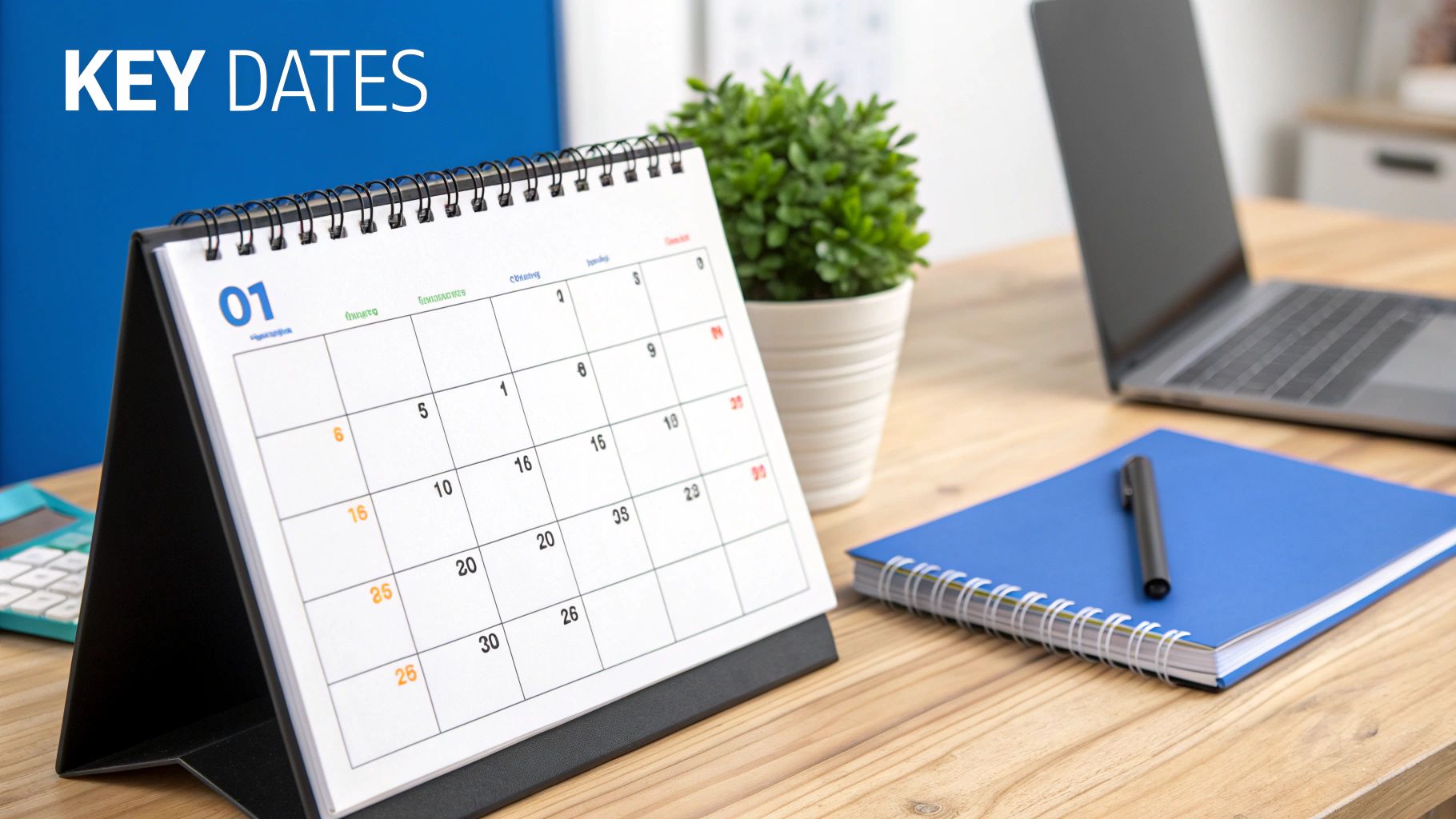new requirement for visa interviews: starting april 22, 2025

Understanding The New Visa Interview Requirements

The US Embassy in Nigeria announced important changes to visa interview requirements on April 11, 2025. These updates affect Nigerians planning to travel to the United States and represent a significant adjustment to the application process. Effective April 22, 2025, prospective travelers need to be aware of these new procedures.
Starting April 22, 2025, Nigerian applicants must follow updated U.S. visa interview requirements. One crucial change is the precise matching of the DS-160 barcode number used when scheduling the interview appointment. This applies to applicants in both Abuja and Lagos.
Any mismatch will result in denied entry to the Consular Section. This will require a new appointment and potentially another $185 visa fee payment. The embassy emphasizes barcode accuracy to improve efficiency and minimize errors in the visa application process. This strict measure encourages applicants to be diligent and avoid the costs and delays associated with rescheduling. Applicants should verify their DS-160 barcode alignment at least two weeks before their scheduled appointment. Learn more about these changes here.
These requirements are especially important due to the high volume of US visa applications from Nigeria. The changes affect applicants in both Abuja and Lagos, the two main cities for visa interviews. Applicants traveling from other parts of Nigeria to either of these cities should be mindful of these updates to avoid travel disruptions.
Key Changes And What They Mean For You
These rules introduce a heightened level of precision to the visa application process. This increased rigor aims to streamline the system and reduce errors, ultimately benefiting both applicants and the embassy. It also places greater responsibility on applicants to carefully review their application details.
- Barcode Precision: The most critical update centers on the DS-160 barcode. This unique barcode, specific to each application, must perfectly match the appointment details.
- Location Specificity: The requirements apply to applicants in Abuja and Lagos, reflecting the high volume of applications processed at these centers.
- Financial Implications: The possibility of an additional $185 fee highlights the importance of accuracy. This cost, along with potential travel and lodging expenses, makes careful attention critical.
The impact of these changes goes beyond the immediate application process. Rescheduling delays can disrupt travel plans, particularly during peak travel times. Nigerians planning to travel to the US should thoroughly understand and be prepared for these new requirements.
The Critical DS-160 Barcode Matching Requirement

Beginning April 22, 2025, a new requirement mandates precise barcode matching on the DS-160 form. The barcode must perfectly align with the information provided when scheduling your visa interview appointment. This seemingly minor detail carries significant weight for Nigerian applicants.
Any discrepancy can result in denied access to the Consular Section. This would necessitate rescheduling the appointment and potentially losing the visa application fee.
Understanding the DS-160 Form
The DS-160, officially known as the Online Nonimmigrant Visa Application, is the cornerstone document for anyone seeking a non-immigrant visa to the United States. This digital form collects essential biographical information, travel history, and other relevant details necessary for visa processing. Upon completion, the form generates a unique barcode.
This barcode serves as a key identifier, tracking and verifying your application throughout the entire visa process. With the new requirements announced by the US Embassy in Nigeria, the importance of this barcode has been amplified.
How the Barcode System Works
Think of the DS-160 barcode as a digital fingerprint for your visa application. When you schedule your interview, this barcode connects your personal data and application details to a specific date and time. This streamlined system assists the US Embassy in managing a large volume of applications, especially from high-demand regions like Nigeria.
The new emphasis on accurate barcode matching adds an additional layer of security and efficiency. It helps ensure the right applicant is connected to the right appointment.
Common Errors and How to Avoid Them
Minor errors in barcode matching are a common pitfall for Nigerian applicants. These mistakes, though often simple, can cause significant disruptions to travel plans. Diligence and attention to detail during the application process are paramount.
Let’s examine some of the most common barcode errors and explore solutions to prevent them:
- Typographical Errors: Even a single mistyped letter or number can throw off the barcode. Thoroughly double-check all information entered on the DS-160 form and when scheduling your appointment.
- Using an Old DS-160: Always ensure you use the barcode from your most recent DS-160 submission. Using a previous version, even if from a recent application, will result in a mismatch.
- Incorrect Confirmation Number: Verify your appointment confirmation number carefully. It must be associated with the correct DS-160 barcode. Double-check this information during the scheduling process.
To minimize stress, consider reviewing some common questions to ask before interview.
The following table details common mistakes Nigerian applicants make with their DS-160 barcodes and the resulting consequences:
Common DS-160 Barcode Mistakes and Their Consequences
| Common Mistake | Consequence | How to Avoid |
|---|---|---|
| Typographical Errors in Name, Date of Birth, etc. | Barcode mismatch, denied entry to Consular Section, need to reschedule appointment, potential loss of application fee | Double-check every character entered on the DS-160 and appointment scheduling system. |
| Using an Old DS-160 Barcode | Barcode mismatch, denied entry to Consular Section, need to reschedule appointment, potential loss of application fee | Always use the barcode from the most recent DS-160 submission. |
| Incorrect Confirmation Number | Inability to verify appointment, potential scheduling conflicts | Carefully verify the confirmation number against the DS-160 confirmation page. |
By understanding these common errors, applicants can take steps to ensure a smooth and efficient visa application process.
Verifying Your Barcode
The US Embassy in Nigeria strongly recommends verifying your DS-160 barcode at least two weeks prior to your interview. This proactive approach allows sufficient time to rectify any discrepancies and avoid last-minute issues. Log in to the appointment scheduling system and compare the displayed barcode with the one on your DS-160 confirmation page.
This simple verification step can save considerable time, money, and stress. This recommendation reflects the Embassy’s April 11, 2025, announcement regarding the new requirements for Nigerian applicants. These updated procedures apply to both Abuja and Lagos.
The Real Cost of Non-Compliance: Beyond the Fee

Failing to meet the new visa interview requirements, effective April 22, 2025, has significant financial implications for Nigerian applicants. The immediate loss of the $185 visa application fee is just the beginning. The true costs extend much further. Careful planning and attention to detail are now more critical than ever.
The Hidden Costs of Rescheduling
Travel to the embassy can be a substantial expense, particularly for applicants outside major cities like Abuja and Lagos. Transportation costs, by road or air, add up quickly. Many applicants also need to take time off work, resulting in lost wages. The need for accommodation, especially for those traveling from more remote parts of Nigeria, adds another layer to the financial strain.
Consider a teacher traveling from Kano to Lagos for their interview. A return bus ticket might cost ₦20,000, with an additional ₦15,000 for two nights in a hotel. Lost earnings from two missed workdays could reach ₦10,000. This brings the total to ₦45,000, a significant amount on top of the visa application fee.
The Domino Effect of Delays
Based on past data, barcode mismatches alone are projected to impact over 200,000 applicants globally due to the new requirements. In high-demand countries like Nigeria, these changes could worsen existing delays. Applicants must now upload all documents digitally at least 72 hours before their interview. This digital shift, intended to streamline the process, may initially increase processing times by up to 30% and potentially lead to higher visa rejection rates. For Nigerians, these changes follow the new requirement, implemented on January 1, 2025, mandating a second visit to the U.S. Consulate General in Lagos for all visa applicants. This adds another administrative step, emphasizing the importance of careful preparation. Learn more about these challenges here.
Rescheduling isn’t simply an inconvenience. It can delay travel plans by months, especially during peak periods. This can cause missed opportunities, whether for education, work, or family matters. The resulting disruptions can affect other financial commitments like flights and accommodations, potentially leading to additional losses.
The Value of Preparation
The potential costs of non-compliance highlight the importance of thorough preparation. Careful attention to detail, from correctly completing the DS-160 form to double-checking barcode information and uploading documents accurately, can ultimately save significant time, money, and stress. Investing time in preparation is an investment in a smooth and successful visa application process.
Mastering the New Digital Documentation System

Starting April 22, 2025, US visa interviews will require all documentation to be submitted digitally. Announced by the US Embassy in Nigeria on April 11, 2025, this new system requires careful preparation from Nigerian applicants. Mastering the online document submission portal is now a crucial step in the visa application process. This section provides the information you need to successfully navigate this new system.
Understanding the Document Upload Requirements
The new system requires uploading specific documents 72 hours before your scheduled interview. This pre-interview upload is mandatory. While designed to make the process more efficient, it also means applicants must be thoroughly familiar with the system’s technical specifications. Just as you wouldn’t arrive at the airport with an expired passport, you cannot attend your interview without correctly uploading the required documents.
Technical Specifications and File Formats
The digital documentation system has specific requirements for file size, resolution, accepted file types, and naming conventions. These are not optional guidelines, but critical elements for a successful submission. Non-compliance will result in rejection, requiring you to resubmit and potentially delaying your interview.
- File Size Limitations: Files exceeding the size limit will not upload. You may need to compress larger files, ensuring they remain readable.
- Resolution Requirements: Documents must meet minimum resolution standards to be legible. Blurry or pixelated documents will be rejected.
- Acceptable File Types: Only specific file types, such as PDF and JPEG, are accepted. You must convert your documents accordingly.
- Naming Conventions: Following the specified naming conventions, for example, “Passport_Surname_FirstName,” ensures efficient processing and avoids confusion.
Overcoming Common Technical Obstacles
Nigerian applicants may encounter challenges like unstable internet connections, dealing with large file sizes, or being unsure if uploads were successful.
- Unstable Internet: A reliable internet connection is vital. Consider using internet cafes or other locations with stable internet service for your uploads.
- File Compression: Several tools, both free and paid, can compress large files without significant quality loss. Explore these options to meet the file size requirements.
- Verification: Always verify your uploads. The system should provide confirmation. Take screenshots of these confirmations as backup.
Required Documents and Submission Checklist
The following table summarizes the necessary documents for US visa applications from Nigeria. It provides a comprehensive checklist outlining format requirements, submission deadlines, and specific notes for Nigerian applicants.
| Document Type | Format Requirements | Submission Deadline | Special Notes for Nigerian Applicants |
|---|---|---|---|
| Passport | PDF or JPEG (Clear image of bio page) | 72 hours before interview | Ensure passport validity extends at least six months beyond intended travel dates. |
| DS-160 Confirmation Page | 72 hours before interview | Verify barcode accuracy against appointment details. | |
| Visa Photograph | JPEG (Meeting specific dimension and background requirements) | 72 hours before interview | Ensure photo adheres to US visa photo guidelines. |
| Supporting Documents (e.g., bank statements, employment letter) | PDF or JPEG | 72 hours before interview | Translate any documents not in English. |
This new digital documentation system is a key aspect of the updated visa interview process. By understanding the technical requirements and preparing in advance, Nigerian applicants can successfully navigate the system, ensuring a smoother and more efficient visa application experience.
Navigating Enhanced Background Verification Protocols
The U.S. Embassy in Nigeria announced new visa interview requirements on April 11, 2025, effective April 22, 2025. These changes introduce increased scrutiny for Nigerian applicants, significantly expanding the scope of required personal disclosure. The new protocols place a particular focus on your digital footprint and travel history, demanding a new level of transparency for a successful visa application.
Decoding the Expanded Travel History Requirements
The required travel history documentation has doubled. Applicants must now provide two years of comprehensive travel records, a significant increase from the previous one-year requirement. This includes detailed accounts of all international travel, regardless of the trip’s purpose or duration. Even short trips to neighboring countries like Cotonou or Accra must be documented.
This expanded requirement can be challenging for applicants who may not have retained all necessary records. However, it’s essential to provide as much information as possible. If you have gaps in your travel history, explain them clearly and provide any supporting documentation you do have. Offering a concise narrative explaining the reasons for your travels can also be beneficial in demonstrating transparency.
Navigating the Social Media Disclosure Mandate
The new requirements also mandate disclosure of social media activity over the past five years. This includes providing information about all social media platforms you’ve used, including Facebook, Instagram, and Twitter. This new mandate raises important questions regarding the balance between transparency and individual privacy.
This requirement applies to any platform where you hold an account, even if it’s inactive. Even if you haven’t used a platform in years, it still needs to be disclosed. Compiling a complete list might require checking old emails or phone records for account creation confirmations or password reset requests.
Understanding the Impact on Visa Decisions
Nigerian applicants, particularly those applying for high-demand visa categories, face an increased risk of processing delays due to these new protocols. The U.S. Department of State’s increased scrutiny impacts all visa categories, from tourist and work visas to immigrant visas. This heightened scrutiny aims to enhance vetting procedures and mitigate security risks. More detailed statistics on visa processing times and approval rates can be found here.
Honesty and consistency are paramount in presenting your information. Any discrepancies between your disclosed information and what the embassy uncovers independently can negatively affect your application. These more intrusive requirements necessitate careful consideration of your rights and responsibilities regarding data privacy. Consulting with immigration legal experts can help you navigate these considerations and prepare your application effectively. Meticulous preparation and a commitment to honesty are key to confidently navigating the new visa interview process.
Your 90-Day Success Timeline: From Application to Approval
Navigating the new US visa interview requirements, effective April 22, 2025, requires careful planning for Nigerian applicants. This 90-day timeline, starting from your intended travel date and working backward, offers a structured approach to the application process.
Phase 1: 90-80 Days Before Travel (Initial Steps)
Begin with thorough research into the specific visa category you need. Understand the requirements and gather preliminary documents. Then, initiate your DS-160 form. This is the first formal step, requiring accurate personal information. Don’t rush this process.
Phase 2: 79-60 Days Before Travel (Application and Scheduling)
Finalize and submit your DS-160 form. Carefully review all information for accuracy before submission. Securely store your confirmation page and barcode. Once you have your DS-160 confirmation, schedule your visa interview appointment. Double-check that the barcode on your appointment confirmation matches the one on your DS-160 form. Finally, begin gathering all supporting documents outlined in the requirements, including financial records, travel history, and social media information.
Phase 3: 59-30 Days Before Travel (Document Preparation and Verification)
Organize all required documents and ensure they meet the format specifications for digital upload. This includes correct file types, sizes, and naming conventions. Two weeks before your interview, verify that the barcode on your appointment confirmation still matches your DS-160 confirmation. This is crucial to avoid issues on your interview day. If any discrepancies arise, contact the embassy immediately. Early detection allows ample time for correction.
Phase 4: 29-8 Days Before Travel (Digital Upload and Final Preparations)
Upload all required documents to the designated online portal at least 72 hours before your interview. Verify upload success and keep confirmation screenshots for backup. Familiarize yourself with common visa interview questions. Practice your responses and maintain a calm, confident demeanor. Transparency can ease applicant concerns. For example, understanding the benefits of background checks can be helpful. You can learn more about this in articles like Educating Job Applicants on Background Checks. Finally, confirm your travel logistics to the embassy, considering potential delays.
Phase 5: 7-1 Days Before Travel (Pre-Interview Checklist)
Conduct a final review of all submitted documents. Ensure everything is in order and accessible. Choose appropriate attire for your interview; professional dress conveys respect. Plan your route to the embassy, accounting for traffic and allowing ample time to arrive early.
Day of Interview: Be Prepared and Punctual
Arrive at the embassy well before your scheduled time. Be prepared to present your documents, including a printed copy of your appointment confirmation and DS-160. Answer all interview questions truthfully and confidently. Maintain eye contact and be respectful.
This 90-day timeline offers a roadmap for Nigerian applicants navigating the new US visa interview requirements. Strategic planning minimizes potential complications and maximizes your chances of a positive outcome. Ready to streamline your relocation journey? JapaChat, Nigeria’s premier AI immigration expert platform, offers personalized guidance. Sign up for free today: https://japachat.com
Comments
One response to “new requirement for visa interviews: starting april 22, 2025”
-
[…] who want to explore the UK job market after graduation or establish their own business ventures. Learn more about Graduate Visa and how it can benefit your career […]

Leave a Reply